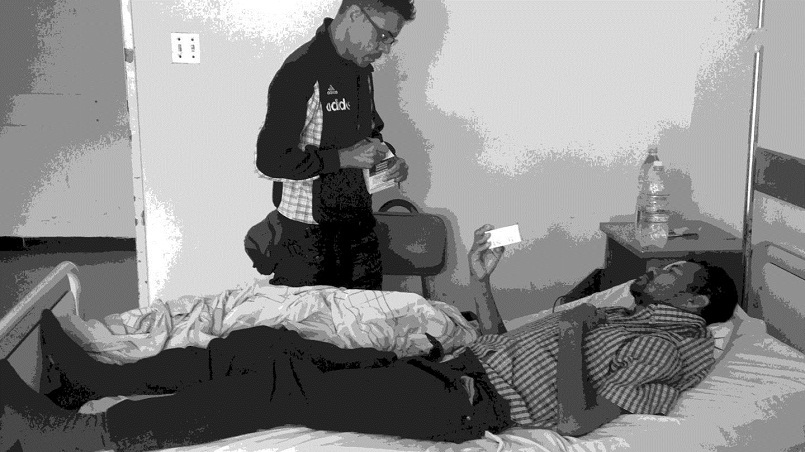
VALENCIA, Venezuela— The patients sit on plastic chairs in a dimly lit gay bar. They wait attentively for the manager, a local health activist, to give them the latest word on the medicine shortages.
“I’ve got some bad news, and some good news,” says Eduardo Franco, president of Manos Amigas Por la Vida, a Venezuelan NGO that assists HIV patients in the central part of the country.
“The bad news is we still don’t know when the government will import Isentress,” he says of the life-saving antiretroviral medicine that many HIV patients depend on. “The good news is we have a donation in Colombia, but we need to get it across the border…and pay the National Guard.”
Medicine shortages in Venezuela have reached critical levels, as the country’s economy collapses amid slumping oil prices and the mismanagement of public finances.
The national federation of pharmacies reports that Venezuela has only 15% of the medicines it needs, and the situation is becoming life-threatening for many Venezuelans living with HIV.
For the past 18 years, the national health system has provided HIV patients with antriretroviral drugs that are otherwise unaffordable to many people. But as the public health system crumbles and medicine supplies stop arriving, some 4,000 HIV patients who depend on those medicines are currently going without treatment, according to local advocacy groups.
“We need international help urgently,” said Franco, whose foundation provides assistance to thousands of patients in central Venezuela.
At the June 27 meeting in Valencia, a roomful of 40 people living with HIV told me that they’ve been going without treatment since March, because Isentress, a drug for which there is no generic version, is no longer available at the government-run pharmacy where they’re registered.
The longer the patients go without treatment, the more likely they are of catching infections such as tuberculosis, or developing cancerous tumors. Those health complications are even deadlier now in Venezuela because of empty pharmacies and the poor state of public hospitals.
“We’ve got one foot in the grave,” says a thin HIV patient wearing a Panama hat.
“I’m taking three antiretroviral medications and I can’t find any,” added a more robust-looking 44-year-old, who also asked to remain unidentified due to stigma and widespread discrimination in Venezuela.
Faced with medicine shortages, organizations that support HIV patients are scrambling to find international help. But it isn’t an easy task in a country where the government is reluctant to work with civil society groups, which they regularly accuse of using donations as a “political instrument.”
Franco said that his organization and another group from the nearby city of Barquisimeto managed to get a donation of 820 pots of Isentress from AIDS activists in Colombia—enough to treat 410 patients for two months. But the donation has been stuck on the wrong side of the border for weeks because the Venezuelan government refuses to grant import permits. Officials recently told Franco that they couldn’t even give him documents to transport the medicines within Venezuela, even if he got them across the border.
Franco, a former navy mechanic, said his organization’s only option now is to smuggle the medicines into Venezuela by bribing border guards. He says all he can do is hope that soldiers will not confiscate the pills as they are transported from the border to Valencia, a 10-hour drive.
“The local human rights ombudsman has told me they will facilitate transit,” Franco said. “We are counting on his word.”
Others organizations are also struggling to get desperately needed aid into the country. Accion Solidaria, an NGO in Caracas, says it has resorted to bringing in donated HIV medicines in suitcases from the U.S. as a stopgap measure while larger drug shipments are arranged.
The organization then has to hustle to quickly deliver medicines to waiting patients in Venezuela before the government can accuse them of hoarding drugs.
Accion Solidaria’s director, Feliciano Reyna, blames President Nicolas Maduro’s administration for the problems. He says socialist authorities wasted Venezuela’s money when it was available, and now don’t have many options left to ease the crippling medicine shortages. But it’s also a problem of poor organization and poor planning by government officials.
A report published in April by ACCSI, another group that supports HIV patients in Venezuela, found that it took the health ministry more than four months to place a $32 million purchase order of AIDS medicines after one health minister was replaced by another. Now that purchase order, which is being handled through the World Health Organization, isn’t expected to arrive in Venezuela until September.
